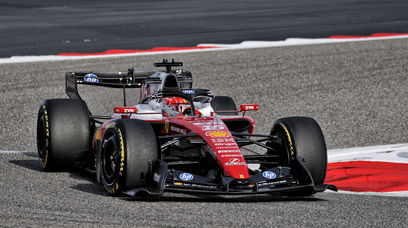Mercedes technical director James Allison is hopeful his team has eradicated the "spiteful" nature of last season's F1 car that made Lewis Hamilton and George Russell so unhappy. The biggest complaint from the driving duo last year related to the unstable rear of the W14 on entry into the corners, resulting in a lack of confidence through and on exit, so leaving them feeling they could not push, and ultimately bleeding lap time. The upshot was Mercedes' first season without a victory since 2011, even if it did finish second in the constructors' championship, albeit a long way adrift of main rival Red Bull. In the development of the W15 that was launched on Wednesday, Allison has confirmed that he and his technical department have naturally concentrated on ensuring the rear of the car delivers for Hamilton and Russell this season. Asked as to the major area of focus with the car, Allison replied: "A big focus has been on improving the previous car’s unpredictable rear axle, which the drivers often referred to as spiteful. "We have worked on that to try and create a car that is reassuring to the drivers. At the beginning of a corner when you're hard on the brakes and turning in, the rear needs to feel rock solid. And then as you get towards the apex, the car needs to feel progressively more nimble, and eager, to turn. We have been trying to build that into the car. "We’ve also worked hard to create a less draggy car, and to add performance in the corners. There’s also been some housekeeping on areas in which we had room for improvement, including the DRS effect, and pit stop performance. "We were always very good at delivering a pit stop in a repeatable time, which is the key thing for a pit stop. The repeatable time that we could do our pit stops in was still three to four tenths slower than the best teams, though. So hopefully we will have moved in the right direction there."
W15 floor reliant on 'ugly, inefficient conditioners'
Allison is confident Mercedes has "delivered on all the things we said we wanted to do", although the proof of the pudding will not be revealed until the car hits the track in pre-season testing in Bahrain next week following an initial shakedown at Silverstone. "Some aspects are unbounded and therefore you can never be fully satisfied," added Allison. "We will not know until we run the car truly. But I think we can say that we feel like we have worked well. "Formula One is a relative game. Whether we've worked well enough to be competitive, only time will tell. We do not know what everyone else has done." Crucially, with the W15 possessing an all-new chassis, Allison can only hope the aerodynamics work in tandem with the vital area of the floor that has been so inherent to the current ground-effect era, and where Red Bull has had the upper hand that has led to its dominance. "Most of a Formula One car is not visible," said Allison. "It has always been like that, but even more so with this current generation of cars where so much of the performance comes from how the floor interacts with the road. "Everything you see above the waterline are the ugly, inefficient conditioners that try to help the floor do its good work. Whether or not a car is effective is down to how well, aerodynamically at least, that floor is permitted to behave."
Most read







